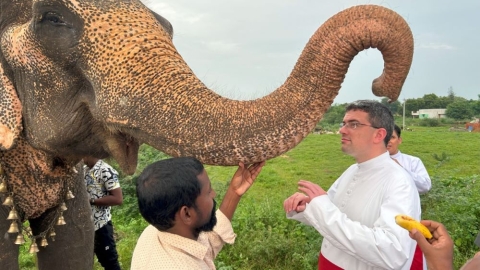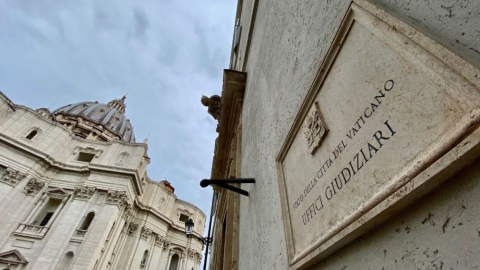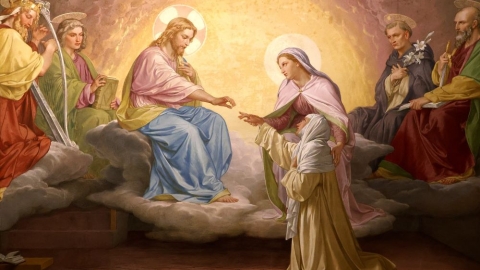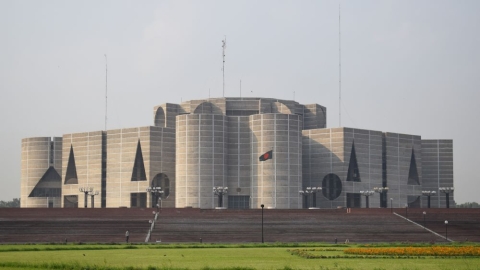Fiducia Supplicans: Bishop Aillet’s Commentary
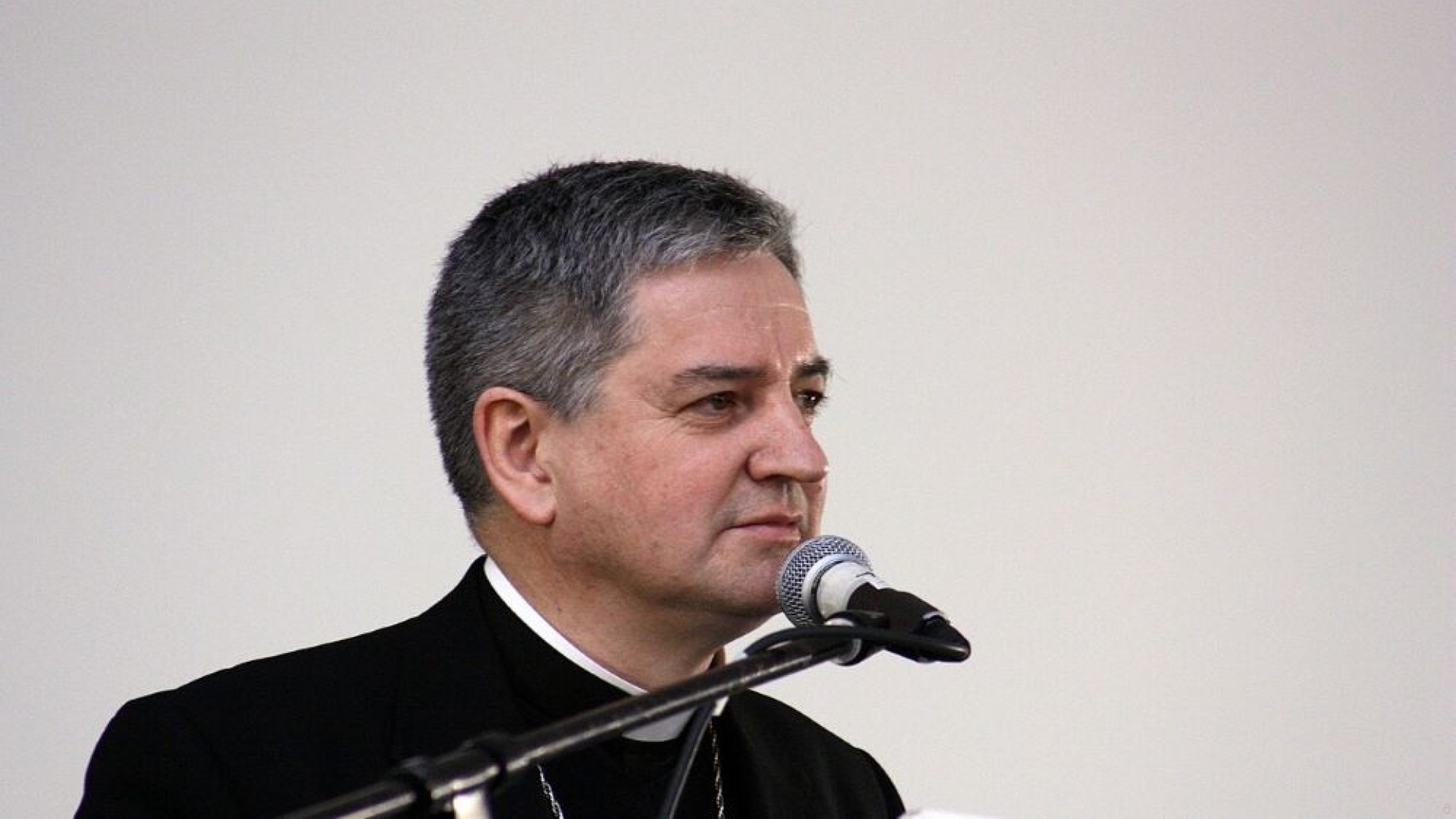
Marc Aillet, Bishop of Bayonne, Lescar, and Oloron (France)
Bishop Marc Aillet of the diocese of Bayonne, Lescar, and Oloron (France), published a long statement on his diocesan website to comment on the Declaration of the Dicastery for the Doctrine of the Faith (DDF), Fiducia Supplicans (FS), which has already been much written about and provoked numerous reactions of rejection on all continents.
The text first follows the framework of a number of previous interventions. The first section is titled “An Unchanged Doctrine on Marriage,” citing the text of FS (no. 4 and 5), with an allusion to the Responsum of the Congregation for the Doctrine of the Faith (CDF) of February 22, 2021, on the same subject.
The second section is about the “Distinction between liturgical blessings and pastoral blessings” and observes, contrary to the claims of Cardinal Víctor Manuel Fernández, Prefect of the DDF, that “the text does not bring anything new to the ordinary teaching of the Church in these matters.”
The third section considers the extension of the pastoral blessing to same-sex couples, which is the true subject of the document. The bishop notes that we “slip surreptitiously from the possibility of blessing one person, whatever his or her situation, to a blessing granted to a ‘couple’ in an irregular situation or of the same sex.”
The statement continues: “Despite all the clarifications [...] we are certainly obliged to note that this was received, nearly unanimously by both the pro and the contra sides, as ‘a recognition by the Church of homosexual relationships’ themselves.”
“Yet,” Bishop Aillet continues, “it is unfortunately often in this sense that the practice of blessing same-sex ‘couples’—already in usage in certain local churches, notably in Germany or in Belgium, and in a perfectly public manner—is understood. It is to be feared that they feel themselves thus encouraged, as a certain number of people have already demonstrated.”
Related Article:
Questions Which Warrant Clarification
Under this title, the Bishop of Bayonne introduces a detailed theological discussion on the DDF’s text. He asks six questions to identify the difficulty.
“Wouldn’t these blessings contradict the notion of a ‘sacramental’ that all blessings assume?” he asks first of all. And he remarks that it is this notion, truly theological, which had permitted the CDF to respond in the negative, because a sacramental can only bless what is objectively “ordered to receive and express grace.”
“Is there not a distinction to be made between blessing a person and blessing a ‘couple’?” Bishop Aillet again asks. The bishop remarks that the blessings concern individuals. Thus, “the novelty of the FS does not lie in the possibility of blessing one person in an irregular situation or homosexual relationship, but in blessing two who present themselves as a ‘couple’.”
The Bishop of Bayonne continues very astutely: “A question of semantics imposes itself, which is not resolved: can the term ‘couple’ reasonably be given to the relationship between two people of the same sex? Have we not integrated a bit hastily the semantics that the world imposes on us but which confuse the reality of the couple?”
He explains: “isn’t sexual difference essential to the very constitution of a couple? This is an anthropological question which should merit clarification in order to avoid all confusion and ambiguity, because if the world has extended this notion to these realities which do not enter into the Creator’s Design, shouldn’t the magisterial word assume a certain rigor in its terminology to correspond as best as possible to the revealed anthropological and theological truth?”
“What about homosexual relationships?” the bishop again asks. Granting “a blessing to a homosexual ‘couple’ [...] seems thereby to endorse the homosexual activity which connects them, even if we clarify that this union cannot be likened to marriage. This therefore raises the question, which was not addressed in this declaration, of the moral status of homosexual relationships.
“Yet the teaching of the Church [...] holds these relationships to be ‘intrinsically disordered.’” And the bishop concludes: “if God is not reluctant to bless the sinner, can He speak well of what does not concretely conform to His Design?”
“Are there not acts that are intrinsically evil?” Bishop Aillet recalls “the constant teaching of the Magisterium on the existence of intrinsically evil acts which remain forbidden in all circumstances.” Yet, he notes, FS “often evokes often the sinner who asks for a blessing [...] but remains silent on the particular sin which characterizes these situations.”
“Can the exercise of pastoral charity be disconnected from the prophetic mission of teaching?” The Bishop of Bayonne asserts that “we cannot separate the exercise of pastoral charity from its prophetic mission of teaching. And the heart of the preaching of Jesus remains the call to conversion, which we can regret is not mentioned in this declaration.”
The bishop emphasizes that “when Jesus manifests His compassion regarding the sinner, He always urges him to change his life. [...] What kind of pastoral solicitude would not invite the faithful, without judging nor condemning anyone, to evaluate their lives and their behavior in relation to the words of the Covenant and the Gospel?”
“Can the pastoral and doctrinal oppose each other?” finally asks Bishop Aillet. He explains: “Additionally, can pastoral accompaniment and doctrinal teaching be in opposition to each other, as if intransigence were on the side of the doctrine and principles, to the detriment of the compassion and tenderness that we pastorally owe to sinners?” And he shows the intransigence of the Truth of Christ.
Practical Pastoral Attitude
The prelate’s conclusion is commensurate with his analysis: clear, precise, charitable.
“Also, in conclusion, and seen in the context of a secularized society where we are experiencing an unprecedented anthropological crisis, which inevitably leads to persistent ambiguities:
“--I invite diocesan priests, facing couples in irregular situations or persons engaged in same-sex relationships, to show a welcome full of kindness: people must not feel judged but welcomed by a look and an attentiveness which expresses God’s love for them.
“--I then invite them to establish a pastoral dialogue and to have courage—for their own good and with the appropriate sensitivity, without judging them and by personally involving them in the pastoral relationship—to tell them clearly the Truth that the Church teaches about their situation.
“--Finally, I invite them, if people ask, to give them a blessing, provided that it is to each person individually, calling them to conversion and inviting them to ask the assistance of the grace that the Lord grants to all those who ask Him to conform their lives to the Will of God.”
This statement from the Bishop of Bayonne, Lescar, and Oloron is an important item to add to the file of the Fiducia supplicans proceedings.
(Source : dioces64.org – FSSPX.Actualités)
Illustration : Poussah, Domaine public, via Wikimedia Commons
